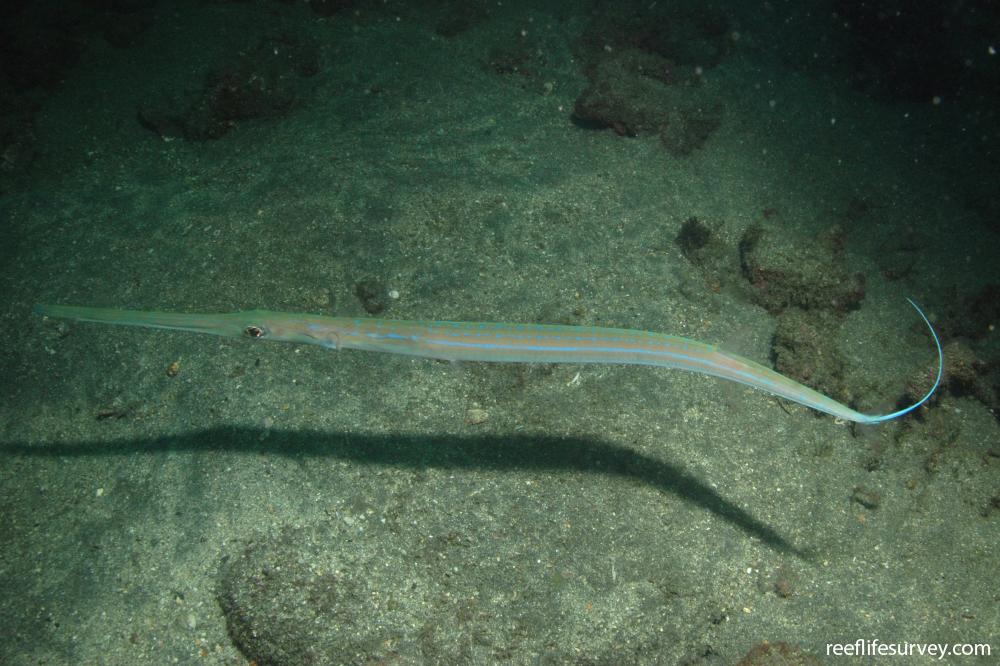Fistularia commersonii
Bluespotted cornetfish | Bluespotted Flutemouth | Smooth CornetfishSimilar Species
Same Genus
Distribution
Mediterranean, Temperate Africa, Temperate Australasia, Tropical Eastern Pacific, Tropical Indo-Pacific
Description
Long, thin, whip-like body, often seen held perfectly straight when swimming slowly and undulating with a snake like motion when swimming quickly. Snout extremely long and narrow and has a long tail filament. Blue lines and spots on body, lacks row of bony plates on back in front of dorsal fin as in F. petimba (Rough Flutemouth) . Long filament extending from the middle of the tail, absent in Aulostomus chinensis (Trumpetfish).
Information
Max Size: 160 cm
Sea Temperature Range: 17.5-31.3°C
Depth: 0-132m
Habitat Generalization Index: 20.19
Also referred to as the SGI (Species Generalisation Index), this describes the habitat niche breadth of the species. Species with values less than 15 are found in a relatively narrow range of reef habitat types (specialists), while those over 25 may be found on most hard substrates within their range (generalists). Learn more here.
Conservation and Rarity
IUCN Status: Not Evaluated
Occurrence: Frequent (12.3% of sites)
Occurrence describes how often the species is found on surveys within its distribution. It is calculated as the % of reef sites surveyed by RLS divers across all the ecoregions in which the species has been observed
Abundance: Few (3 per transect)
Abundance is calculated as the average number of individuals recorded per RLS transect, where present.
Edit by: Joe Shields














